Just In
- 2 hrs ago

- 3 hrs ago

- 12 hrs ago

- 12 hrs ago

Don't Miss
- Finance
 107% Returns: Tata's NBFC Doubles Investors Money, Rs 53,440 Profits On Rs 50K; Key Parameters To Buy/Sell
107% Returns: Tata's NBFC Doubles Investors Money, Rs 53,440 Profits On Rs 50K; Key Parameters To Buy/Sell - Sports
 KKR vs RR Memes: Fans Take Potshot at KKR for Conceding Match after Scoring 223; Praises Jos Buttler's Knock
KKR vs RR Memes: Fans Take Potshot at KKR for Conceding Match after Scoring 223; Praises Jos Buttler's Knock - Movies
 Bade Miyan Chote Miyan Vs Maidaan Box Office Collection Day 6: Akshay Kumar BEATS Ajay Devgn. Margin Is...
Bade Miyan Chote Miyan Vs Maidaan Box Office Collection Day 6: Akshay Kumar BEATS Ajay Devgn. Margin Is... - News
 UAE Weather Report: Floods Hit Dubai, 18 Dead; Govt. Shuts Schools, Colleges
UAE Weather Report: Floods Hit Dubai, 18 Dead; Govt. Shuts Schools, Colleges - Education
 UPSC Success Story: An IITian, A Government Job Holder at Railways, Quit the Job and Emerged as an IAS
UPSC Success Story: An IITian, A Government Job Holder at Railways, Quit the Job and Emerged as an IAS - Automobiles
 Jeep Compass Gets More Powerful 268.3bhp Turbo Petrol Engine – Check Out All The Details Here
Jeep Compass Gets More Powerful 268.3bhp Turbo Petrol Engine – Check Out All The Details Here - Technology
 Redmi Pad SE With 90Hz Display Launching on April 23 in India; Could Be Priced for Less Than Rs 20,000
Redmi Pad SE With 90Hz Display Launching on April 23 in India; Could Be Priced for Less Than Rs 20,000 - Travel
 From Coconut Breaking on Head to Men Dressing as Women: 12 Unique Indian Rituals Explored
From Coconut Breaking on Head to Men Dressing as Women: 12 Unique Indian Rituals Explored
Does Pregnancy Age Your Body?
All women know that pregnancy changes their body permanently. But does pregnancy age your body faster than it would normally have? That is the question you would not have asked yourself or your doctor yet. Post pregnancy body changes are common and everyone knows about them. Most young women try to delay pregnancy as much as possible because they think pregnancy would in fact ruin their looks.
But if pregnancy did age your body, how would all the celebrities be having their babies and still looking so gorgeous? You could argue that celebrities have beauty treatments and cosmetic surgery at their disposal. For the average woman, these expensive treatments are not an option. So it is very important for them to know whether pregnancy ages their body and makes everlasting changes.
IS IT SAFE TO EAT CHOCOLATE DURING PREGNANCY?
Skin loosening and sagging breasts are post pregnancy body changes that we are aware of. Everything depends on how you take care of your body after pregnancy. Some signs of ageing and post pregnancy body changes are quite similar. However, there is no evidence to show that pregnancy itself makes you age faster.
Here is a closer look to see if pregnancy ages your body faster than it should.
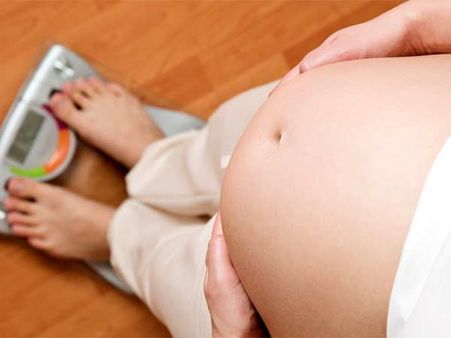
Extra Pounds
.Most women never lose the weight they gain after pregnancy. This does not mean that pregnancy makes you fat. It is in fact a personal choice to put in that effort to lose the extra baby weight as quickly as possible
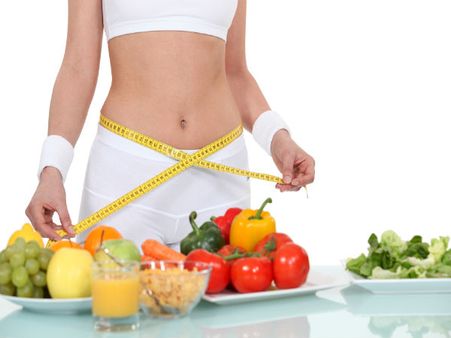
Weight Gain
Some women have also complained that they progressively gained weight after their pregnancy. This again has little to do with pregnancy itself. Ageing is a natural process that slows down your system of metabolism. So you gain weight due to ageing and not because of pregnancy.

Stretch Marks
Stretch marks as such are not signs of ageing. Many young people who lose weight suddenly have stretch marks. So although these marks look ugly, they do not add age to your body.

Loose Skin
Loosing up of the skin is an effect of pregnancy as well as ageing. However, massages help to improve your body shape and increase the elasticity of the skin.
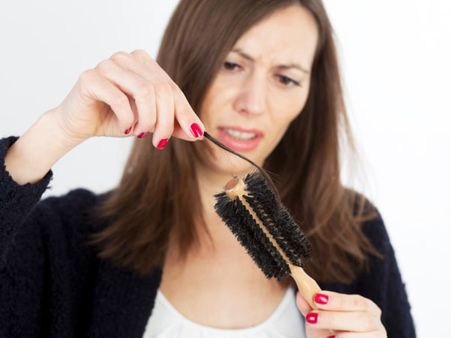
Hair Loss
Pregnancy does not make you lose hair. All the hair that you lose in your post partum period is actually the hair that you did not shed due to your pregnancy hormones before. However, if you do not eat well after pregnancy, you can lose hair because of malnutrition.
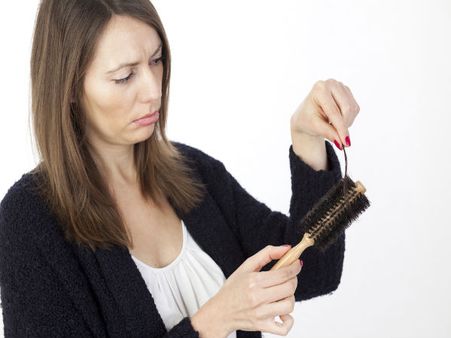
Greying
Greying happens because of lack of particular nutrients in your food. You need to have Vitamin B supplements to prevent or reverse greying of hair. This has little to do with pregnancy in general.

Sagging Breasts
Whether or not you feed your baby, your breasts do sag a little after pregnancy. Pregnancy hormones make your breasts softer and that makes them sag a little. Sagging is also a sign of ageing.
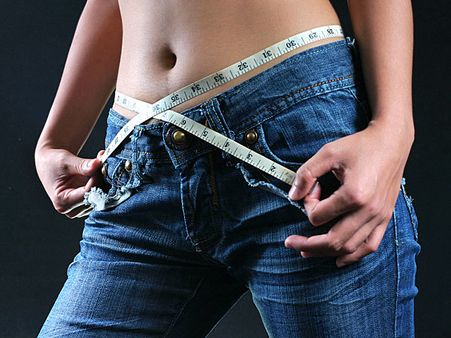
Waist
It is a common notion that you can never have a flat tummy after pregnancy. This is not strictly speaking true. It is a combination of genetics and hard work. Some women do not have the post pregnancy baby bump at all like Kate Middleton. And some women have it and have to work hard in losing the bump. But you can have a normal waistline again.
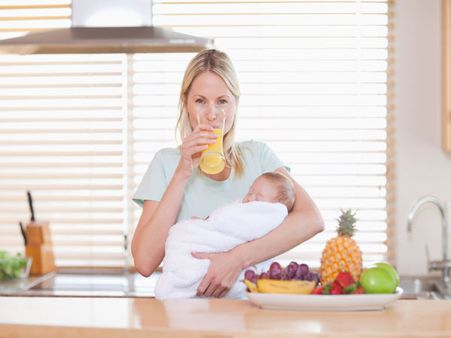
Dark Patchy Skin
The pregnancy mask or dark skin patches are common during pregnancy. They tend to fade away after you deliver. A dark line across your stomach may stay for some time and then fade away. Moles and nipples get darker and usually do not lighten. None of these are signs of ageing.
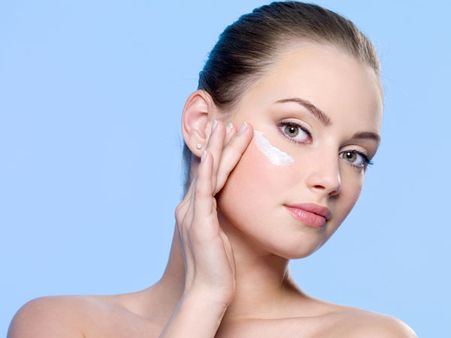
Wrinkles
Sometimes, pregnancy can make you look tired and aged. This is because your body loses its nutrient reserve after pregnancy. You need to eat well after you deliver to be back on your feet. If you don't take care of your body after pregnancy, you might get wrinkles.

Getting Pregnant Later Age
Getting pregnant at an advanced age does speed up the process of ageing. This is simply because the elasticity of your skin and your body's ability to bounce back is reduced with age. Ideally, your body is best suited to get pregnant in the 20s or early 30s.
-
 healthSolar Eclipse 2024: Dos and Don'ts for Pregnant Women During Surya Grahan
healthSolar Eclipse 2024: Dos and Don'ts for Pregnant Women During Surya Grahan -
 healthLunar Eclipse 2024: Dos And Don'ts For Pregnant Woman During Chandra Grahan
healthLunar Eclipse 2024: Dos And Don'ts For Pregnant Woman During Chandra Grahan -
 fashionDeepika Padukone-Ranveer Singh Announce Pregnancy: 6 Maternity Outfit Ideas For The Modern Mom-to-Be
fashionDeepika Padukone-Ranveer Singh Announce Pregnancy: 6 Maternity Outfit Ideas For The Modern Mom-to-Be -
 healthLate Singer Sidhu Moose Wala's Mother Is Pregnant Through IVF, Know What It Is And How To Prepare For It
healthLate Singer Sidhu Moose Wala's Mother Is Pregnant Through IVF, Know What It Is And How To Prepare For It -
 insyncVirat Kohli And Anushka Sharma Name Their Baby Boy 'Akaay', Know What This Beautiful Name Means?
insyncVirat Kohli And Anushka Sharma Name Their Baby Boy 'Akaay', Know What This Beautiful Name Means? -
 pregnancy parentingMaternal Health Awareness Day 2024: 15 Foods That Boost Maternal Health
pregnancy parentingMaternal Health Awareness Day 2024: 15 Foods That Boost Maternal Health -
 pregnancy parentingFrom Contractions To Water Breaking: Knowing When It's Time For The Hospital During Pregnancy
pregnancy parentingFrom Contractions To Water Breaking: Knowing When It's Time For The Hospital During Pregnancy -
 pregnancy parentingBirth Control Pills Can Affect This Primary Function In Women: Find Out What
pregnancy parentingBirth Control Pills Can Affect This Primary Function In Women: Find Out What -
 pregnancy parentingTwo Wombs, Four Hearts: US Mom's Extraordinary Double Uterus Pregnancy
pregnancy parentingTwo Wombs, Four Hearts: US Mom's Extraordinary Double Uterus Pregnancy -
 healthExclusive: A Pregnant Mom Can Posses These Maternal, Fetal Health Risks If Exposed To Air Pollution
healthExclusive: A Pregnant Mom Can Posses These Maternal, Fetal Health Risks If Exposed To Air Pollution -
 pregnancy parentingDelhi Air Pollution: Pregnant Women Must Follow These 4 Things!
pregnancy parentingDelhi Air Pollution: Pregnant Women Must Follow These 4 Things! -
 pregnancy parentingDelhi Air Quality Crisis: How Air Pollution Can Affect Unborn And Newborn Babies? Precaution Tips For Pregnant
pregnancy parentingDelhi Air Quality Crisis: How Air Pollution Can Affect Unborn And Newborn Babies? Precaution Tips For Pregnant


 Click it and Unblock the Notifications
Click it and Unblock the Notifications



